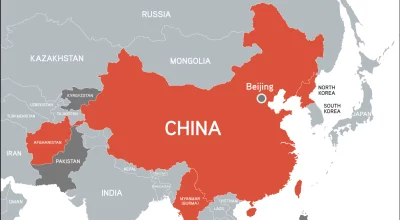
Achyut Wagle
The Minister of Physical Infrastructure Development of Karnali, Khadka Bahadur Khatri, was sacked last week. His indictment by Patan High Court on a banking offence—providing a fake bank guarantee document to secure a construction bid—is merely just the tip of the iceberg representing the perils of Nepal’s completely failed public procurement system. This failure has had a multifaceted impact on almost every aspect of the national economy and governance. The dividing line between politics-for-power and profit-making by misusing state power has been obliterated. It is only due to an absolute disregard of the concept of ‘conflict of interest’ by the public officials in the first place that has made it possible for people like ex-minister Khatri to simultaneously own a construction company and become a minister, who by virtue of his position effectively can influence the awarding of public contracts.
Nepal’s public procurement system has completely failed because of several but interconnected reasons. The political leaders from all major parties have been colluding to extract ill-gotten gains from contractors. This is obvious when one observes the low level of capital expenditure, low quality of public works and rampant corruption in every public procurement process, whether big or small. This is exactly why the contractors without a political background or contribution in the public sphere are increasingly occupying crucial political positions. They often prevail in the legislative process by blocking or tampering the governance-related bills so as to safeguard their vested interests.
The case of Pappu Construction is another example of such collusion and impunity. The company is owned by Hari Narayan Rauniyar, who is also a member of Parliament. Out of the 41 bridge construction contracts that Pappu and its joint venture partners obtained, 25 projects have long crossed completion deadlines. The other projects that are claimed to be in progress have also shown a dismal performance. On August 21 2019, the Public Procurement Management Office (PPMO) issued a public notice barring Pappu Construction from participating in any new bidding processes. But experts claim that Pappu’s ongoing and overdue projects already exceed Rs30 billion in value.
Politicians and the bureaucracy are more often than not reluctant to award the contract if it were likely to go to a party that is not willing to collude. At the same time, relatively honest bureaucrats and project managers are unwilling to take the risk of straightening up the system in fear of politically abetted retribution. The political protection accorded to high-profile corrupt individuals has several undesirable effects on the entire political economy. It has ballooned the informal economy and exacerbated capital flights, along with adding several other grave anomalies that impinge upon both fiscal and monetary systems of the economy. The recurrent and often protracted liquidity crunch in the financial system, expanding balance of payments and current account deficits, dwindling contribution of manufacturing to gross domestic product (GDP) and making Nepal entirely an import-dependent economy are some of the direct pitfalls of failed public financial management in general; and public procurement management in particular.
The rationale of placing the PPMO directly under the office of the prime minister has effectively rendered it a toothless entity that barely carries out proper monitoring and evaluation of bidding and post-bidding performance (at least in the large bids). The bureaucrats consider their posting in the PPMO itself as a humiliation. Therefore, the Office has never been able to show its willpower, even to enforce unambiguous provisions of the Public Procurement Act, 2007.
One such provision which otherwise would have borne desirable results is related to the declaration of conflict of interest by the bidders. Sub-section 2(j) under Section 31 of the Act in particular states the proponents (bidders) shall furnish the ‘Statement that proposals shall not be processed in the event of a conflict of interest and information relating to legal action if fraud or corruption is committed.’
Retrospectively, however, the current fate of both the PPMO and the Act were anticipated since both the political and bureaucratic leadership were working hand in glove to abort very enactment of the Act itself. The reason was obvious. This, at least in theory, would erect some fences around their use of discretionary powers to expend the public funds. It took fifteen years, from 1992 to 2007, to pass the Public Procurement Bill through Parliament and to set up a PPMO. Still, the mindset of the leadership has hardly changed, thus the plunder in the public procurement continues.
Nepal is now faced with an unlikely paradox. On the one hand, the country faces underdevelopment due to a lack of adequate financial resources. On the other, the state has been unable to spend funds already available. Despite the adoption of a federal economic system, the local governments, in particular, have been unable to carry out development activities by spending the budget already available in their coffers. Nepal Rastra Bank’s data on eleven months of the last fiscal year has shown that the balance at various government accounts remained Rs164.54 billion, including Rs63.22 billion with the local governments, even around mid-June 2019.
The main reason for the sub-optimal level of expenditure at all levels of government is primarily due to the confusion surrounding public expenditure (and procurement). Despite the constitution providing for all three levels of government to enact their respective ‘fiscal bill’ for their economies, the authority to procure the public goods still seems to be regulated by the federal Public Procurement Act, 2007. Various recent notices published by the PPMO, the electronic general procurement (e-GP) notice, for instance, try to address ‘for all public entities’ by a blanket definition which intends to encompass the provincial and local governments as well. This is neither practical nor in the spirit of federalism. The local and provincial governments within their legislative rights should be given authority to formulate their procurement laws or guidelines as per their geographical and resource mobilisation needs, while the federal government should only support these laws to be nationally synchronised. An accountability mechanism, locally developed and owned, needs to be put in place to stop the incessant leakages from the national treasury. (Source: The Kathmandu Post)
















